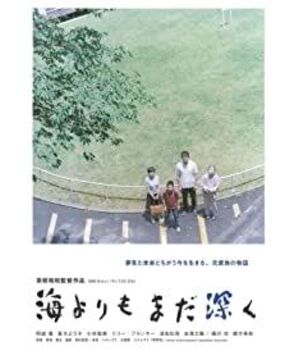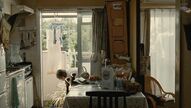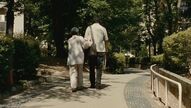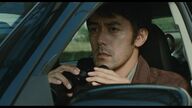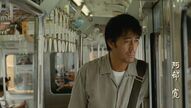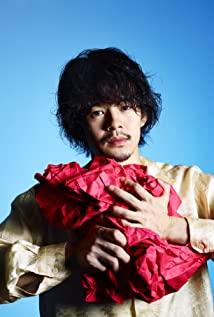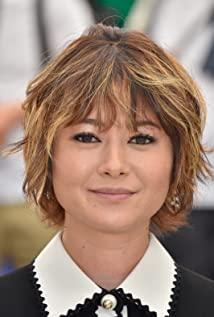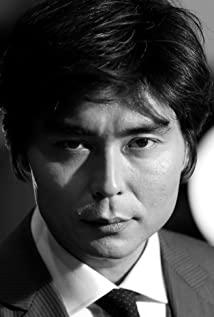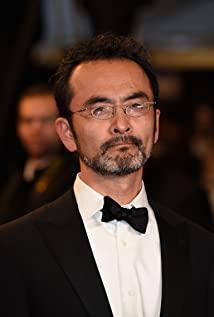I haven't heard of it yet, but it's Hirokazu Kore-eda that doesn't sell well. Although so far, I have only seen three of his family films. They are: [Like Father Like Son], [Haijie Diary], and this one [Deeper than the Sea], but only this one evokes the dream in my heart, and I can't help but write down the moving in my heart. Maybe I should finish this review after watching [Never Stop]; maybe then I'll say, no, it's not Hirokazu-eda's best movie yet. But I don't want to stop writing here, because the emotion is a momentary emotion, it is short and cannot press the pause button, and it is extremely difficult to capture the memory.
I like this movie, one is because it is real; the other is because it has regrets.
Ryota and his mother--Ms. Tree Shirin
Ms. Tree Shirin is a frequent guest in Japanese family films. The image of her mother is so peaceful and kind, and she has insight into the world. There is an old Chinese saying: "A loving mother loses her son." Yes, the first deep-sea love is her almost condoning love for her son Liang Tai. Ryota's mother is traditional, patient, and kind. She is the only "philanthropist" in this film. Because Japanese family culture is deeply influenced by Confucianism and Buddhism, the ideological tradition of male superiority over women and husband as the guide for wife is reflected in Japanese dramas. When Ryotai patted her chest and said without shame that she was a late bloomer, the old lady just laughed and joked: "Don't be too late!" She left her son's face and self-esteem, and secretly guarded her son's hope of life. But at the same time, she also has dreams. Her greatest wish is to live in a "big house with three bedrooms and one living room." Although she knows that this dream will not be realized in her lifetime, she is still optimistic and carefully guards her vision. Going out with Ryotai, encountering neighbors, "this is my son, a writer" is often a topic of conversation she is proud of. Then tell Ryota that the yellow butterfly following her may be his dead father. She is well aware of the truth that "if deep love is a tragedy, it must be read in terms of death". For the role of Ryota's father, the director did not deliberately portray it, but reflected his personality through the dialogues of the characters in the play. Ryota, who is addicted to gambling, inherited his father's character and became the second object of disgust in Ryota's sister's family. Even so, Ryotai's mother just instructed Ryotai: "I look like I'm getting old, you have to watch by the side!"
Ryotai and his ex-wife
Hiroko, Ryota's ex-wife, strive to make progress and are representatives of modern women. Their marital relationship also reflects the tension and disharmony of adult relationships in modern society.
Xiangzi is a character who never gives up the pursuit of a higher quality of life and actively creates a role model for children. The interesting thing about the director is that every character in the movie can be portrayed in 3D. Crying and laughing can coexist, as can joy and sadness. Obviously, due to financial and responsibility issues, Kyouko chose to separate from Ryota. Her original words were, "I don't think Ryota is a family-friendly person." Still, we can't name her for that, money comes first. She respects the time she spends with her child every month, respects the child's thoughts, and even if she is divorced, she still treats her mother with respect and courtesy, calling her "Mom." This is the kind of calm self-discipline that people lack these days. On the other hand, in front of her new boyfriend, she never said a bad word to Ryotai, but instead maintained it. However, "Adults can't live without love alone." In reality, life is still survival, and the mother's anxiety.
poor person must have something mean. Ryota bears too many shadows of her father. He's not bad, he just hasn't grown up. In the eyes of those around him, he is deviant, living a childish life that is not a mature man; because he can go to the casino with the money he just earned as a private investigator, he secretly follows his ex-wife and her new boyfriend, and also brings The child did what his father had done with him before -- bought lottery tickets and even planned a typhoon night at his mother's house with lies. We all did things that seemed absurd and stupid when we were kids, but then we were forgiven and we grew up. If Ryota's dream has not been realized, it is because he still has a lot of room for growth. "Where did I go wrong in my life?" he couldn't help asking himself.
Sympathy is more than blame, it's Hiroko's helplessness, it's mother's tolerance, and it's their protection for Ryotai's future.
Ryota and her son,
we all lived as disgusting people. Ryota once hated his father's writing novels, and hated that this era did not make him the ideal person. In high school, his ideal was to become a local civil servant. However, the reality hit him hard, and before he knew it, he became a father. This subtle influence also deeply affected the relationship between him and his son.
He took his son to buy lottery tickets, only in this way can he find the feeling of being alive. He indulged in the fantasy of getting rich overnight and shared the joy of dreaming with his son. On the night of the typhoon, he even took his son to the slide to shelter from the rain, eat snacks and drinks, and tell him stories about his childhood. This kind of blood ties that can't be broken up for a lifetime is also a glimmer of hope in his hope.
However, no one can understand Ryota's fragility. He was afraid that his son would not recognize him because he had a rich stepfather. Numerous times, he tried to take comfort in the words of his colleagues to cheer himself up. The warmth of home is exactly what he yearns for. The night of the typhoon is the last attempt at reunion.
It is a pity that
after the typhoon, the weather is sunny, and everything in the world seems to be reborn once, and everything starts to operate in a new round of order. The smile on his face will not be diminished by the tears, but rather brighter. The former feelings are like a pair of oil paintings, the old ink is constantly being covered up by the overlapping paint of the new face, but it exists, it is always below, it is just invisible.
Everyone continued on the road with regrets in their hearts, watching Liang Tai gradually move away from the unhappy back, the parting song sounded, isn't this our life?
"There are cracks in everything, and that's where the light comes in."
View more about After the Storm reviews


